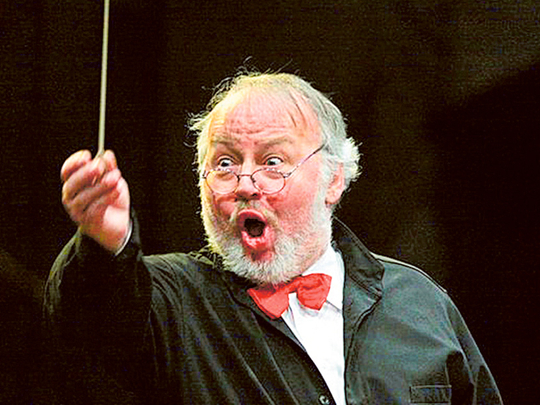
The Austrian cellist Heinrich Schiff, who performed with some of the world’s major orchestras before health problems led him to turn to conducting, has died at the age of 65.
Ludwig Muller, of the Vienna Chamber Orchestra, told the Austrian Press Agency on Friday that Schiff died overnight in a hospital in the country’s capital. No cause of death was given.
Most known for his mastery of the cello, his recordings of works by Bach, Shostakovich and Brahms earned him several prestigious music prizes.
Later in life, Schiff turned increasingly to conducting after health problems ended his solo career. He appeared as a conductor with a host of orchestras, including the Los Angeles Philharmonic, the Philharmonia Orchestra and the Orchestra of the Age of Enlightenment, among many others.
Schiff’s repertoire ranged from Vivaldi to contemporary masters such as Witold Lutosawski and Friedrich Cerha.
The renowned cellist Steven Isserlis lamented the “terrible, terrible news” of Schiff’s death, adding that he was a “person with a core of true goodness and humanity; and a wonderfully serious, genuine musician”.
In an interview with Slipped Disc last year, Isserlis recounted a story about Schiff that he said displayed the man’s “crystal intelligence and his unique sense of humour”.
He told the website: “I was complaining (as usual) about the pressures of performing the Bach suites. He looked at me, and said quietly: ‘Bach saved my life’.
“I asked him what he meant and he told me that a few years ago, he had a serious stroke, and was in danger of losing all mobility on his left side. As soon as he got to hospital, and realised what was happening, he started (almost instinctively, I imagine) to go through the fingerings of the Prelude to Bach’s first suite, moving his fingers ceaselessly to the imaginary music. He did this for about 20 hours a day, he thinks; and gradually his whole body came back to life, powered by those fingerings.
“Today, you would never guess that he could have been half-paralysed, possibly even incapable of speech — or worse. The miracle of Bach — and of Heinrich.”
The broadcaster Petroc Trelawny posted on Twitter: “Very sorry to hear of the death of Heinrich Schiff, master cellist and conductor.”
In a 2012 interview, the cellist Natalie Clein, the first British winner of the Eurovision Competition for Young Musicians, told the Guardian it was “as if Schiff was born playing”.
She said: “Schiff is a true cello animal. His hands seem to be moulded around the instrument... He has a Ferrari-like, 0-to-60 agility and power that’s thrilling, if a bit intimidating, when you are experiencing it close up. He taught me that there’s always something more to search for, that you can endlessly explore new colours and textures on the cello, so long as you are guided by the score.
“He strikes the balance between individuality and faithfulness to a composition perfectly, maintaining a deep integrity and old-school seriousness. There is a high-voltage electricity in his vibrato, a breathlessness that keeps you endlessly listening; but his playing also has a sensitivity and a generosity of spirit that makes his sound instantly recognisable. His interpretations are ones to cherish and love.”
According to Gramophone, Schiff was concerned by some modern interpretations of classical music, complaining in 1988 that it had been “very much mistreated”.
He said: “Take the Mozart violin concertos. If you hear any of the top ten violinists playing them it’s beautiful sound, fine technique, but the style is hopelessly wrong — it’s almost a different language.”
A customary four-star Guardian review of a 2007 performance in Bristol, said Schiff “seemed to transmit his Zen-like meditative approach to the audience, calming the senses and heightening perception of the music”.
The review closed: The intimacy and immediacy... was intense, but Schiff’s demeanour was one of great humility, concerned only to suggest that Bach’s is the music of the spheres.”













